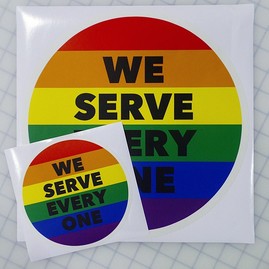
In our culture we have been taught to compete from an early age. Somewhere along the line we have imbibed the idea that some of us are better than others, at any rate at some things. We have also taken on board a notion of entitlement – if I work just a bit harder, or play the game according to the rules, at some point I can expect to be rewarded – perhaps with a pension or a nice house.
It is very clear from today’s passage that Jesus wants us to think and behave differently. James and John come full of demand and entitlement. “We want you to do for us whatever we ask’, they say. Quite extraordinary hubris really – James and John set no limit to their demand. Most of us, if a friend says, ’can you do me a favour/’ are wise enough to say, ‘well it might depend on what it is!’ But Jesus also sets no limit. Perhaps he remembers that he has said, ’Ask and it shall be given to you.’ He responds with the question that he often puts to those, like blind Bartimaeus, who cry out to him for help, “What do you want me to do for you.” He puts himself totally at their disposal...
Jesus wants us to start from a different place. Not to think about what benefits our faith might have for ourselves, but always to be asking the other person, ‘what do you want me to do for you.’ And not to do so because we think that will get us any special favor either – otherwise we will all be running around competing at being the most selfless!
As Jesus shows in parable after parable, God is generous and does not show partiality. This is what makes our current debates around religious freedom so offensive to the very gospel we proclaim. We are not to seek privilege and special position. We are to be the ‘servants of all’ – in fact the Greek word is doulos, which means slave. We are to be the slaves of all – and all means all, not just those whose politics or religious beliefs do not offend us. Good works like education or pastoral care that we may offer to our society in the name of our beliefs, do not give us special privilege to discriminate against those whose views or way of being in the world we do not like.
The question we need to ask is not, ‘how can my rights be protected’? Rather we need to be asking those who are vulnerable, who are suffering in our society, (whether they are trans kids in our Anglican schools, or Aboriginal elders seeking a voice or any other victim of oppression and ridicule) we need to ask, ‘what would you like me to do for you.?” What is it that I can do? And it may not be much. And the pain may be too great. But we need at least to ask and to listen to the reply with respect, as Jesus did to James and John, even when what they wanted was not something He could give or something that would have done them any good. Our task, the task of our prayer, is to learn to let go of the need to put ourselves first and seek to serve.
To serve – and also to proclaim a different way. As the Quaker Peter Jones wrote in 1979, “The whole essence of the New Testament is that Jesus came to proclaim that change is possible. … We belong to a radical tradition that seeks not only to care for the victims of oppression, (which the church is quite good at), but also to change those conditions which produce oppression (which on the whole the church has not been good at).” When a need exists, or when a process is victimizing people, our place is to be with the victims, and to deal with them not with condescension but as fellow children of God. We need to be not just their carers from some position of privilege, but their equals, their friends and their accomplices in the quest for justice.
Jesus calls us to let go of our notions of privilege and entitlement. There are no ‘great ones’ in Christ’s kingdom – only ‘little ones’. And little ones, left to themselves, know that the best way is to join hands and to run the race together, so that all may share the prize. May we reflect this truth in the words we speak, the choices we make and the doors we open and keep open to all who seek to enter them. So, by the way, for those who have been following the debates of Sydney diocese, yoga classes, interfaith dialogue, smoking ceremonies and LGBTIQ events within canon law are all welcome in our parish.
Penny Jones, for 21 October 2018
 RSS Feed
RSS Feed